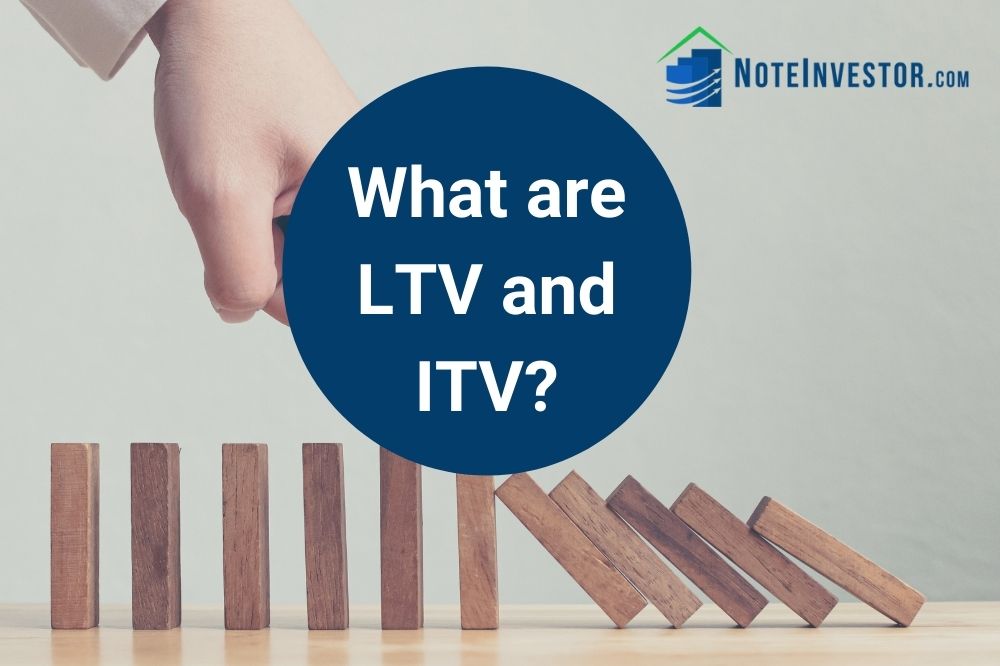You have probably heard a lot of acronyms thrown around in the note industry. Many have to do with note values and calculating price. Including LTV and ITV.
LTV – Loan to Value
LTV stands for Loan to Value. This is shown as a percentage.
LTV tells note investors how much the buyer or payer owes against the property. It helps answer an important question based on the buyer’s equity:
“What is the likelihood the payer will continue to make payments?”
Calculating LTV
LTV is all the loans divided by the property value (not sale price). For example, if I property is worth $100,000 and the payor owes $80,000, the LTV would be 80% (80,000 divided by 100,000). This also means that there is 20% equity in the property.
Be sure to remember two important things. First, mortgage note buyers will use the current value of the property rather than the sales price. That means if the property value goes down so does the equity position.
Second, LTV should also take into consideration ALL the outstanding loans. If the payor has a first and second lien, you would add both those together then divide by the value of the property. This is sometimes called CLTV or Cumulative Loan to Value.
ITV – Investment to Value
ITV stands for Investment to Value. This price is also shown as a percentage. ITV shows how much a note buyer has invested in the real estate note. It answers:
“What is the likelihood the investor will get their money back if the buyer stops making payments?”
Calculating ITV
ITV is the invested amount divided by the property value. For example, if an investor paid $75,000 for an $80,000 note and the value of the property is $100,000 then the ITV would be 75% ($80,000 or 80% is actually the LTV).
This example is for a first position residential note.
One important note is when figuring your investment to value; you must include any senior liens (as they have priority above you in the event of a default). For example, if you purchase a $20,000 second lien for $10,000 behind a $40,000 first lien then (assuming the value of the property is $100,000) the ITV would be 50% (your investment of $10,000 plus the $40,000 first lien divided by the property value).
Understanding both of these terms is important whether you are brokering a note or investing for yourself.
Putting it All Together – Managing Risk with LTV and ITV
LTV helps determine risk. The higher the LTV, the lower a buyer’s equity, which equates to greater risk.
ITV helps minimize the risk. The LTV on an existing real estate note was determined when the seller carried back financing. It can’t be changed. So the note buyer tries to reduce risk by reducing exposure. The higher the risk, the lower the ITV offered by a note investor.
Of course other things determine risk including property type, credit, terms, and seasoning – to name just a few. But in the end the note buyer will use risk to decide on what yield and ITV they will need to make the deal happen.



Excellent explanation and information for the cash flow specialist…